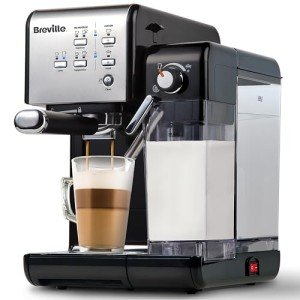The Rise of Home Espresso Machines: A Comprehensive Guide
As coffee fans continue to look for fresh and delicious brews in your home, the appeal of home espresso machines has surged in recent years. No longer simply the domain of coffee shops and coffee bar, these machines empower people to craft barista-quality espresso drinks from the comfort of their cooking areas. This short article will explore the different types of home espresso machines, their functions, and considerations for selecting the right one. Additionally, it will offer a choice of FAQs to help potential buyers make informed choices.
Types of Home Espresso Machines
Home espresso machines can be classified into a number of categories based on their systems and user-friendliness. Each type has its distinct functions, pros, and cons.
| Type | Description | Pros | Cons |
|---|---|---|---|
| Manual Espresso Machines | Needs the user to manually control the brewing procedure, including strategies like pulling a lever to create pressure. | - Complete control over developing process - Compact style | - Requires skill and practice - Time-consuming |
| Semi-Automatic Machines | Machine automates water flow and pressure, but the user still manages the dosing and duration of the developing procedure. | - Balance of automation and control - Versatile | - Learning curve for improving strategies |
| Totally Automatic Machines | Automates the entire developing procedure, from grinding to brewing, typically with programmable settings for customized drinks. | - Extremely user-friendly - Quick and practical | - Less control over the brewing procedure - Higher price point |
| Capsule or Pod Machines | Uses pre-packaged espresso pills or pods to develop coffee quickly and quickly. | - Extremely simple to use - Minimal cleanup | - Limited taste range - More costly per cup than ground coffee |
| Super-Automatic Machines | Integrates functions of completely automatic machines with integrated grinders, enabling users to brew entire bean espresso and milk-based beverages with one touch. | - All-in-one convenience - Ideal for milk-based beverages | - Often the most pricey - Can be bulky |
Functions to Consider
When picking a home espresso machine, possible purchasers should think about the following features to ensure they pick a machine that meets their needs:
Grinder Type:
- Built-in mills can supply fresher premises however might need more maintenance.
- Different grinders enable for more customization of grind size.
Pressure:
- Look for machines that produce a minimum of nine bars of pressure, which is optimal for brewing espresso.
Water Temperature Control:
- Machines with adjustable temperature level settings permit better extraction of flavor from beans.
Milk Frothing Options:
- Consider whether you want a manual steam wand for frothing or an automatic milk frother for benefit.
Alleviate of Cleaning:
- Machines with removable parts and self-cleaning functions considerably lower clean-up time.
Size and Design:
- Ensure the machine fits comfortably in your kitchen area and aligns with your visual choices.
Budget:
- Set a budget before beginning your search, as costs can range considerably from affordable models to high-end machines.
Advantages of Home Espresso Machines
Owning a home espresso machine offers many advantages:
- Cost-Effective: Over time, developing espresso in your home can conserve coffee enthusiasts money compared to frequent café check outs.
- Customization: Users can experiment with different beans, grind sizes, and brewing methods to discover their ideal cup.
- Convenience: The ability to brew espresso any time eliminates the requirement to go out to a coffee shop, especially useful during late nights or early mornings.
- Quality Control: With a home machine, individuals have complete control over the quality of components and developing processes.
Drawbacks of Home Espresso Machines
However, there are some disadvantages to think about:
- Initial Investment: High-quality espresso machines can be expensive, requiring a significant upfront investment.
- Knowing Curve: Mastering the art of espresso brewing can require time and practice, which might be intimidating for newbies.
- Maintenance: Like any device, espresso machines need regular cleaning and upkeep to guarantee optimum efficiency.
FAQs
1. What is go to this site of home espresso machine for beginners?
Response: For newbies, a semi-automatic machine is typically suggested as it provides a balance in between control and automation, permitting you to find out the basics without overwhelming complexity.
2. Just how much should I invest in a home espresso machine?
Response: Entry-level machines can start around ₤ 100 to ₤ 300, while higher-end designs can vary from ₤ 500 to over ₤ 2000. It's vital to set a budget based on your anticipated use and wanted functions.
3. Do I need a different grinder?
Response: While some espresso machines come with built-in mills, buying a different grinder permits for higher personalization and makes sure much better quality premises.
4. How typically should I clean my espresso machine?
Response: Cleaning frequency can differ by machine type, however it's usually advised to clean the machine after each use and perform deep cleansings weekly or regular monthly, depending upon use.
5. Can I make milk-based drinks with any espresso machine?
Response: Not all machines come with milk frothing abilities. If you take pleasure in beverages like lattes or cappuccinos, look for a machine with a steam wand or automatic frother.
Home espresso machines are changing the way coffee enthusiasts enjoy their beloved brews. With different types and advanced features readily available in the market, there is something for everyone. Whether it's the happiness of developing special dishes or just savoring the best shot of espresso, purchasing a home espresso machine can improve both the coffee-drinking experience and the quality of life for coffee lovers everywhere. Similar to any investment, it is essential to weigh the advantages versus the potential downsides and select a machine that seamlessly fits both your lifestyle and preferences.

